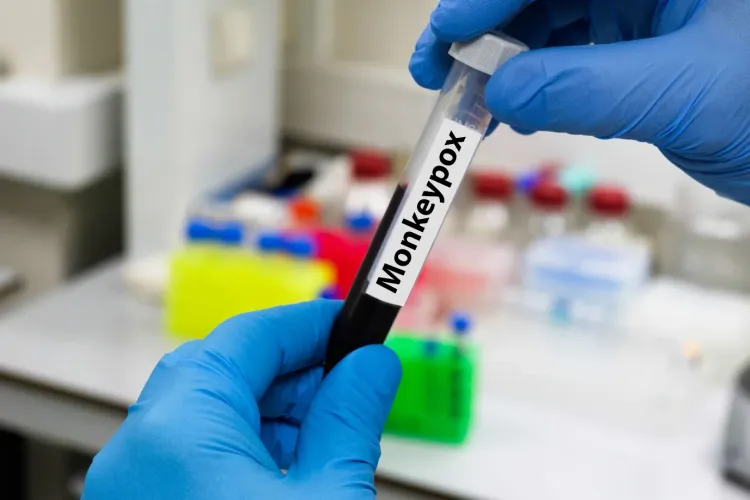Has Malawi Confirmed Its Sixth Mpox Case?

Synopsis
Key Takeaways
- Malawi has recorded a total of six mpox cases.
- The latest case involves an 18-year-old student from Lilongwe.
- Symptoms include fever, fatigue, and a skin rash.
- An emergency treatment center has been established at Kamuzu Central Hospital.
- Mpox can be transmitted through close contact with infected individuals.
Lilongwe, May 2 (NationPress) Malawi has confirmed an additional case of mpox, raising the total to six since the initial three were reported in April. The Public Health Institute of Malawi (PHIM) shared this update on Thursday, revealing that the latest patient is an 18-year-old student from the capital city.
The PHIM stated that the patient's samples were collected on Wednesday at a local health facility after he exhibited symptoms such as fever, fatigue, shortness of breath, and a skin rash. The tests confirmed the presence of mpox.
Malawi declared an mpox outbreak on April 17, a day after the first three cases were validated, according to reports from Xinhua news agency.
In response, the World Health Organisation (WHO) and the Malawian government have set up an emergency treatment center at Kamuzu Central Hospital, one of the main regional referral hospitals in Lilongwe.
The WHO describes mpox as an infectious disease that can result in a painful rash, swollen lymph nodes, fever, headaches, muscle aches, back pain, and fatigue. While most individuals recover fully, some may experience severe illness.
Mpox is transmitted primarily through close contact with an infected person, especially within households. Close contact includes skin-to-skin and mouth-to-mouth interactions, as well as being face-to-face with an infected individual, which can produce infectious respiratory particles.
Signs and symptoms of mpox typically appear within a week but can emerge 1 to 21 days after exposure. Symptoms generally persist for 2 to 4 weeks, although they may last longer in individuals with compromised immune systems.
For some, the initial symptom of mpox is a rash; others might first experience fever, muscle aches, or a sore throat.
The mpox rash usually begins on the face and spreads across the body, affecting the palms of the hands and soles of the feet. It may also start on other areas of contact, including the genitals. The rash begins as a flat sore, transforming into a blister filled with fluid that can be itchy or painful. As it heals, the lesions dry up, crust over, and eventually fall off.










